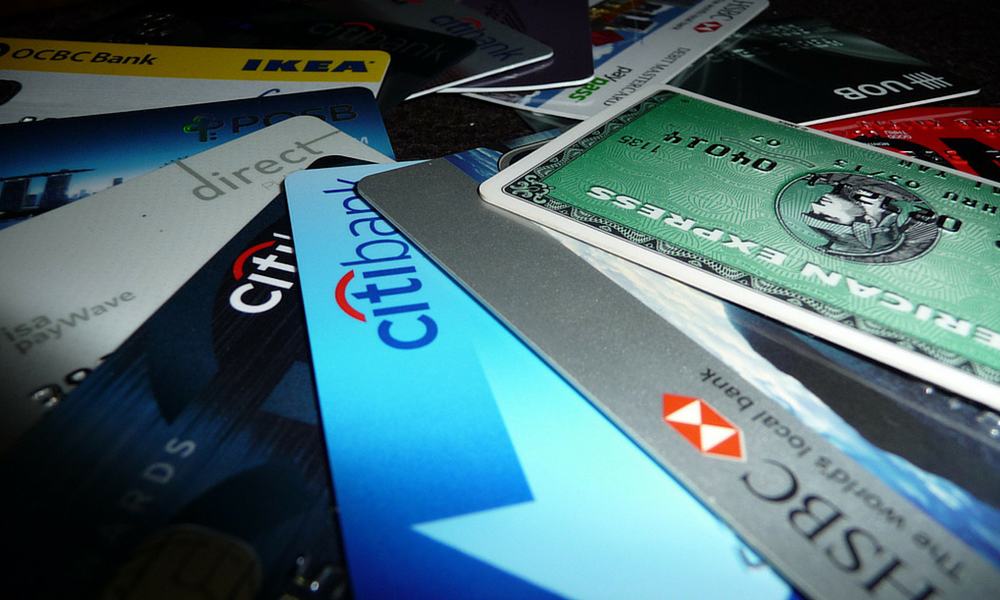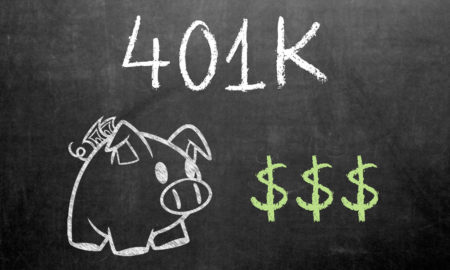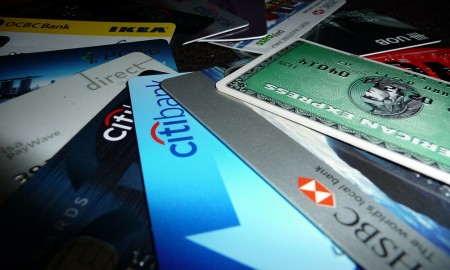

When a Dave Ramsey article on credit cards popped up on my Facebook feed the other day, my interest was instantly piqued. While it’s true that Ramsey’s advice is generally solid and his lessons have been life-changing for many families, his views on using credit has always been puzzling. After all, Ramsey’s stance on credit is to not use it under almost any circumstances.
Reading his articles on credit always leaves me wondering. What do people who follow his advice do if they ever need to take out a mortgage for a home or borrow money to start a business?
No Credit Score Needed?
Sadly, Ramsey’s article didn’t do much to clear things up. In the piece for his blog, Ramsey lists six “myths” about credit and dispels them one by one.
First he shoots down the idea that credit is convenient – especially in emergencies, and next he denies that credit is easy to pay off every month. Since both of those ideas are fairly subjective, I won’t argue with those.
However, another piece of Ramsey’s advice is downright dangerous – and it’s one that relates back to his idea that you don’t even need a credit to get by in life.
“You can qualify for a mortgage and rent an apartment with zero credit (which will happen eventually if you stop borrowing altogether),” writes Ramsey in his blog post. “And for everything else—even cars—pay cash. No credit score needed.”
Why You Might Need Credit
While paying cash for everything your entire life is a noble idea, it’s not the reality for the majority of Americans. Paying cash for a cheap car is smart, but paying cash for a home can be close to impossible in all but a few circumstances.
The idea you can qualify for a mortgage without any type of credit is, again, very puzzling. How are you supposed to get a mortgage without an established credit history?
According to the U.S. Department of Urban Development, it is actually possible to get a mortgage without much credit or a credit score. As their website notes, an FHA loan can be an option when a lender agrees to use non-traditional credit scoring.
When you don’t have a credit card, this means they’ll consider your payment history on other monthly bills, your down payment, and the cost of the home you plan to buy to determine whether you are credit-worthy.
Still, this is certainly the hard road to take when it comes to buying a home and securing a mortgage – which is why it makes a lot more sense to take advantage of small amounts of credit to build a solid credit history over time.
“Normally, (buying a home) requires credit, so establishing credit for that is very important,” financial planner Bob Morrison of Littleton, Colorado’s Downing Street Wealth Management told Bankrate. “You don’t want to go crazy and buy things that aren’t within your means, but at the same time, using credit prudently is wise.”
Of course, there are plenty of ways to establish credit without an actual credit card. But if you’re not taking out a car loan (ever) or borrowing money in any capacity, those other means will be much harder to come by. When you never borrow money – even for the sake of building credit – the paper trail known as your payment history can be almost nonexistent.
A credit card, on the other hand, can show years of responsible credit use with almost no effort on your part – and even if you only use it infrequently. According to Ramsey’s advice, however, you aren’t “adult enough” to handle it, so why even try?
A credit card can show years of responsible credit use with almost no effort on your part Click To TweetDo Credit Card Rewards Actually Amount to Anything?
Another two “myths” Ramsey shoots down are ones he simply doesn’t understand. Why? Because he doesn’t use credit to begin with.
“They give us rewards, points, miles, or cash back!”
“They make our dreams reality!”
“Credit card companies are marketing geniuses,” writes Ramsey. “With rewards systems that appeal to just about anyone, they know exactly how to tempt you to sign up.”
“But no one ever got rich off a rewards program,” notes Ramsey.
While that may be true, credit card rewards do actually help people get ahead in myriad ways, and they even make some “dreams” come true – whether Ramsey wants to admit it or not.
If you need convincing of that last part, just ask Brad Barrett of TravelMiles101.com and RichmondSavers.com. After starting his blog, Richmond Savers, several years ago, Brad got so deep in the world of travel rewards that he built an entire business around helping families get to Disney World on credit card rewards.
A step-by-step instruction guide he created on the topic has been featured everywhere from The New York Times to CBS and NBC. According to Barrett, his family has earned a grand total of 1.5 million points and miles which have been used to book some amazing family vacations over the years.
As of now, that includes trips to Bermuda and all over the United States, and of course a huge extended-family trip to Disney World where even his parents got to come along.
How To Make Credit Cards Work For You
They key to making this work, says Brad, is treating credit as if you were an adult – as in, acting responsibly and paying your bill in full every single month. Also, don’t use credit as an excuse to spend more. Just use your credit card for your everyday expenses, and – voila – you’ll earn points with almost no effort on your part.
Don't use credit as an excuse to spend more. Click To Tweet“We always treat our credit cards as if they were debit cards, so we make 100% sure we have the money to cover each and every purchase,” notes Barrett. “If you change your mindset ever so slightly and stop thinking credit cards are inherently evil, you can see them as a wonderful financial tool that allows you to earn massive amounts of free travel, fraud protection and eliminates the need to carry around cash.”
When it comes to making this strategy work for you, Barrett offers this advice:
- You need to sit down and consider if this strategy is right for you personally. Experts can tell you it is the “right” thing to do, but if you aren’t comfortable with it, just continue avoiding credit cards.
- Always pay your credit cards in full every single month. No amount of “free” travel is worth getting into debt for, so that is an absolutely essential thing to remember.
- If you do decide it is something that can work for your life, then educate yourself on the points and miles that can best work for your travel plans and goals (Barrett and his team offer a free 15-day course to help you get started)
At the end of the day, getting the most out of credit card rewards – whether that means earning cash back or scoring an amazing “dream vacation” every year – is dependent on your ability to handle credit responsibly and wisely.
For the most part, that means using credit only for purchases you planned to make anyway, being extremely diligent about paying down your bills, and taking the situation seriously.
Getting the most out of credit card rewards depends on your ability to handle credit responsibly Click To TweetWhy You Should Ignore Ramsey’s Outdated Credit Advice
Sadly, Ramsey doesn’t think you’re strong enough – or wise enough – to use credit in a safe and responsible way. He would rather have you avoid it altogether, possibly to the detriment of you owning a home in the next decade or longer.
And heaven forbid you see any rewards from credit, or included benefits many cards offer such as auto rental coverage, extended warranties, zero fraud liability, and even free FICO credit scores on your monthly statement.
You’re just too simple-minded to grasp any of these concepts, charge your grocery bill on a credit card and pay it off every month, or keep track of your credit spending in any meaningful way.
If that last part describes you, then yes, you should avoid credit like the plague. But, what about everyone else?
While his intentions are always admirable, Ramsey forgets the fact that many of us are intelligent and disciplined enough to see through the credit card marketing schemes – to actually put credit to work in our favor.
The money guru has it all wrong on this one. If used wisely, the power of credit cards can be harnessed as a valuable tool for your finances. Ramsey may not see it, but we all need to find, and live with, our own truth.













